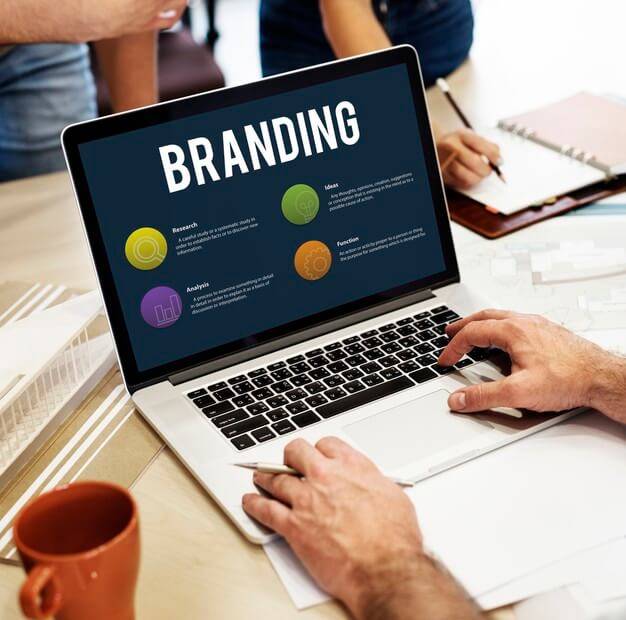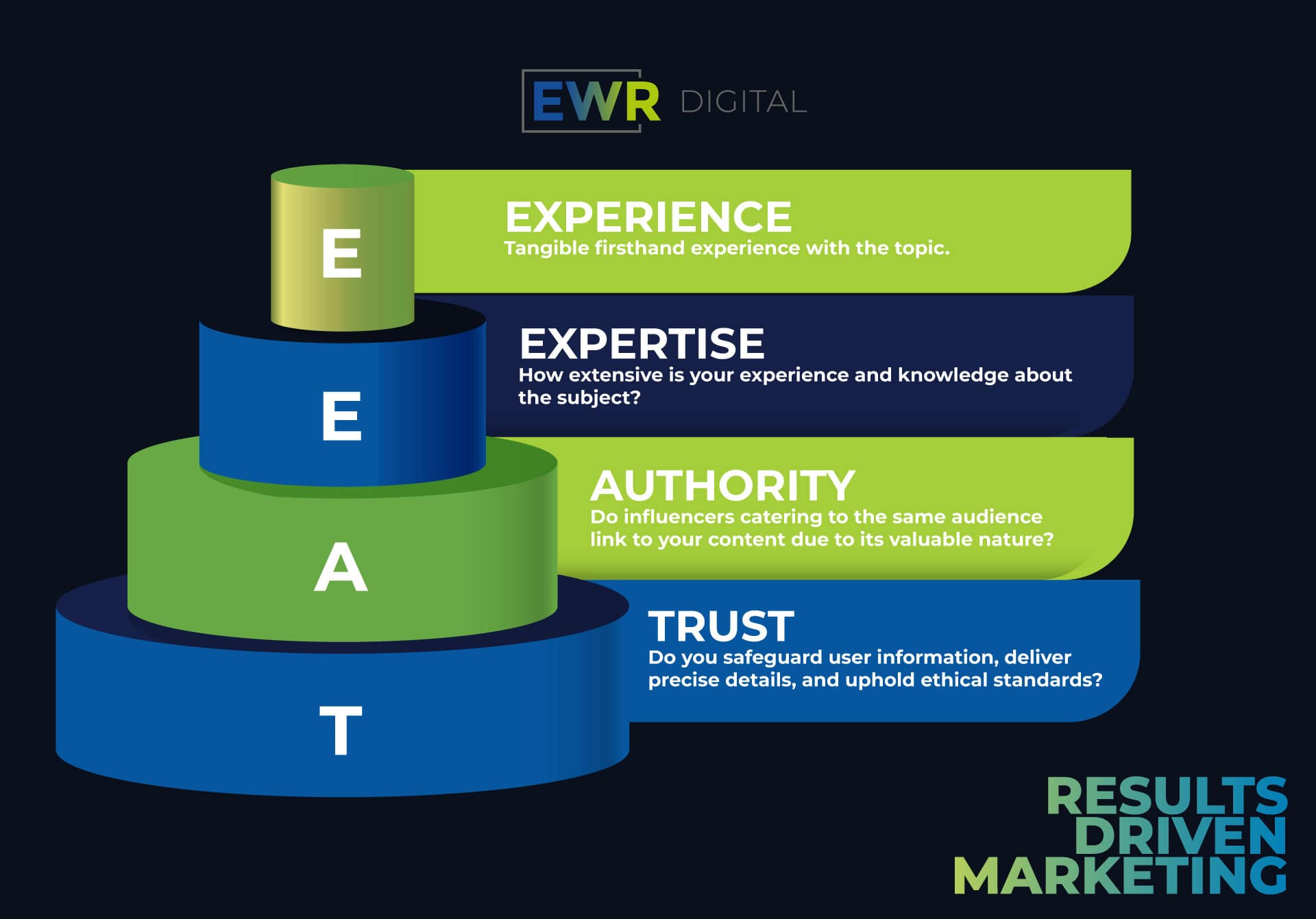Google E-A-T: Part 2 – Authoritativeness
A lot goes into the success of a website, including adhering to the continuous changes that the search engine giants keep throwing at developers and content creators. One of the latest updates that threw businesses into a frenzy was the Google E-A-T update, even though it’s already been around for some time.
It’s crucial to note that even the smallest updates can make a significant impact on your website, which many found out in Google’s Medic update, which includes tweaks to the Google E-A-T guidelines.
Google E-A-T Recap

Google prioritizes content that is not only relevant to the searches that go through its system every day but content that they deem as highly authoritative and written by someone with the relevant expertise in the subject matter. With these two items checked off the list, the website is often deemed as trustworthy and then ranked higher than similar content without the same level of expertise and authoritativeness.
Each of these items (expertise, authoritativeness, and trustworthiness) makes up the criteria of Google’s E-A-T guidelines that help determine what content is relevant to consumers’ searches and provide them with the answers needed.
This concept, while it gained a lot of attention in 2018 with the introduction of Google’s Medic update, was first introduced as an addition to the Google’s Search Quality Rater Guidelines in 2014 and was introduced to help remind content creators that their content needed to be unique and serve a purpose – not simply rehashed information that can be found just about anywhere.
Following the Google E-A-T recommendations is crucial for your site’s success, and to reap the rewards, you must understand how each piece of the puzzle works.
Google E-A-T Part 1 Recap – Expertise
The first piece of this puzzle requires you to showcase your expertise in your given industry/niche. To do this, you need to be making sure you are creating high-quality content and content relevant to your readers, their needs, and showcases your ability to research a topic and share relevant information to help you prove the points you are making.
Not only will this help you stand out as an expert in your particular niche, but it will help you build your overall authoritativeness as well.
Google E-A-T Part 2: Authoritativeness
If part one of the Google E-A-T puzzle focuses on establishing your industry/niche expertise, how is establishing your authoritativeness any different?
- Expertise: Showcases your knowledge in a given area with proper credentials (such as showcasing your education/experience via an about me page or as part of your author bio).
- Authoritativeness: How other people view your content’s quality and how trustworthy you are based on your expertise and previous work.
You can have all the expertise in the world, and yet, if you have yet to take the necessary steps to establish yourself as an authoritative figure in your industry/niche, then that’s going to have a significant impact on how other’s view your work and how it ranks in the search engines.
So, how does one become an authoritative figure within their area of expertise? By utilizing various authority marketing tactics.
What is Authority Marketing?
Authoritative marketing is precisely what it sounds like – marketing tactics that help you stand out from the crowd and help you establish yourself as an authoritative figure that can and should be looked up to. This is often viewed as reputation building or brand building – depending on whether you are trying to pose a specific individual as the authoritative voice or the brand as a whole.
Some of the best ways to help build your online authority are through networking and creating a smart backlinking strategy.
Google pays attention to the number of links that are attributed to your work, how often your content is being shared and where it’s being shared. Of course, while you should be sharing your own work, the goal is to create shareworthy content that your audience and others in your industry/niche will want to share as well.
Building Online Authority

One of the best ways to build online authority and meet the Google E-A-T standards, including influencing their Quality Guidelines, is by addressing the needs and concerns of those in your industry.
Creating High-Quality, Sharable Content Regularly
Arguably one of the best ways to start building your online authority is by creating high-quality, shareable content that your audience and others in your industry will love. That means you need to be taking the necessary time to research industry trends, common consumer complaints, and consumer needs so that you can produce content that addresses them.
Not only do you need to be creating content that will capture the reader’s attention, but it needs to present highly relevant information, and that hasn’t been rehashed over and over again.
After all, you can’t be an innovator if you are simply repeating the same information as everyone else. This will also play an important role in the shareability of your work as well. If you don’t present your audience with new, innovative information worth sharing, they simply won’t.
Finally, you want to make sure you are creating this high-quality, shareable content regularly. This will not only help boost your authoritative voice, but it will also keep you in the front of your audience’s mind, encouraging them to turn to you for information before they turn elsewhere.
Investing in On-Page Search Engine Optimization
Search engine optimization is imperative when it comes to building your online authority. In fact, on-page SEO should be considered an absolute must-have if you’re trying to build your authoritativeness to meet the standards outlined by Google E-A-T.
Your on-page SEO is important when creating your content because it plays a significant role in your audience finding your content in the first place. Think about it – 93 percent of web sessions begin with a search on a search engine such as Google or Bing. When people insert an inquiry into the search engine, those blogs that have been adhering to SEO best practices, such as keyword optimization and keyword insertion in their meta information, will have a much better chance at organically ranking higher up in the search results.
Organically ranking is crucial in building your online authority because consumers tend to turn to these higher rankings (those that fall just after the ads and sponsored posts) most frequently during their search for answers.
For example, the first organic result appears to have an average click-through rate of 28.5 percent, while the second spot averages 15.7 percent. By the time you come to the end of the first page, the eighth ranking page has an average 3.2 percent click-through rate – quite the drop. CRO is and speed optimization is key.
So, if you want to become an authoritative figure in your industry/niche, you need to optimize your content for the search engines. That way, your content becomes more visible to the right people when they need it.
Guest Posting on Other Relevant Industry Websites
Another excellent way to help you build authoritativeness is to practice regular guest posting on other industry/niche blogs.
This is important not only because it encourages you to network with those in your industry but also helps you build a linking strategy, which is considered a rating factor in the Google E-A-T guidelines. Your brand’s authoritativeness is determined by the amount of content you put out by the content linked back to you to by other sites, the number of shares your content gets, etc.
However, simply asking to be featured on random blogs doesn’t necessarily help your authority-building efforts. When it comes to Google E-A-T, reviewers will look at the quality of the sites that are linking to your site.
When respected sites that have been established as high-quality, authoritative sites have you guest post on their site and/or include a link back to your website, it shows Google that you are a voice to be heard.
A Regular Part of the Community
Finally, when attempting to become an authoritative voice in your industry/niche, you need to be an active part of the community. Now, that doesn’t necessarily mean you have to be active physically (though it does help). Instead, it means participating in regular conversations online, both on your site and social media and that of others in your industry/niche.
This can be commenting on others’ blog posts, answering frequently asked questions on social media forums, etc. The more active you are, the more common your name becomes, making it easily recognizable as that of an expert worth listening to.

4 Types of Authoritative Content You Should Be Creating
With content creation being the best way to help you build an authoritative voice and build your website authority, you’ll want to make sure you are taking the time to create the right types of authoritative content.
The good news is that almost any type of content you can imagine can be considered authoritative when done right. If you’re struggling with ideas for authoritative content, here are four types of content you should consider:
1. Blog Content
Of course, the best way to ensure you are putting out content regularly is to schedule regular blog posts to be published. These can be published daily or weekly, however, any less can hinder your audience engagement over time.
With proper monitoring of your blogs, you’ll be able to see what works and what doesn’t for your brand as far as publish frequency goes. Just remember, you never want to focus on pushing content out if it’s not up to snuff. Poor quality content will not help you build an authoritative voice, so make sure you are focusing on both the frequency of publishing and the quality of the content you are publishing.
2. Infographics
Infographics are another excellent choice for those looking to create sharable authoritative content. Not only are images frequently sought out because of how easy it can be to share them, but they are also a consumer favorite when it comes to being presented with information.
That’s because people tend to remember information that is presented to them much easier when it’s presented in a visual format. In fact, when presented with information in a visual format, such as an infographic, consumers reportedly remember about 65% of the information days after the fact, making it a great resource when attempting to build your overall authoritativeness.
3. Case Studies
Now, if you really want to prove your expertise and authoritativeness, then you’ll want to consider creating and sharing case studies.
Case studies are an excellent way to help you build your authoritative voice because it allows you to tell stories about your brand that are backed by fact, not just anecdotal. These studies allow you to collect information and data from those who have utilized your products or services and then use that information to prove your said products/services’ success.
By presenting this information in the format of a case study, it encourages new leads to inquire for more information – allowing you to further prove your case as to why you and/or your brand and its products/services are worth investing in.
Case studies are also an effective method for building brand awareness and authority when working with other leaders in your industry. How – it allows you to present information to a much wider audience than you may usually have access to. When your partner’s audience sees the benefits via these case studies, they are more likely to inquire for more information from you and see how they could benefit.
4. Industry Analyses/Reports
Finally, another way to stand out as an authoritative figure is to publish industry analyses and reports covering all sorts of topics, including:
- New industry trends
- Counter-intuitive ideas
- Current strengths, weaknesses, opportunities, and threats (SWOT reports)
Researching and sharing this kind of information, with accurate data to help back up all claims, you become the source of information that is needed by others. This can help you not only build awareness but give you the potential of creating backlinks as more people/brands link back to your reports and analyses to help them make their points in an attempt to build their own expertise.
Build Your Brand’s Authoritativeness with the Help of EWR Digital
Building your brand’s authoritativeness will require quite a bit of work across not only your content creation but your SEO practices, branding, etc. If you’re feeling a bit overwhelmed by all that you need to accomplish, then let EWR Digital help you out. Curious how EWR Digital can help your brand build authority in your industry? Then contact us today for more information.

